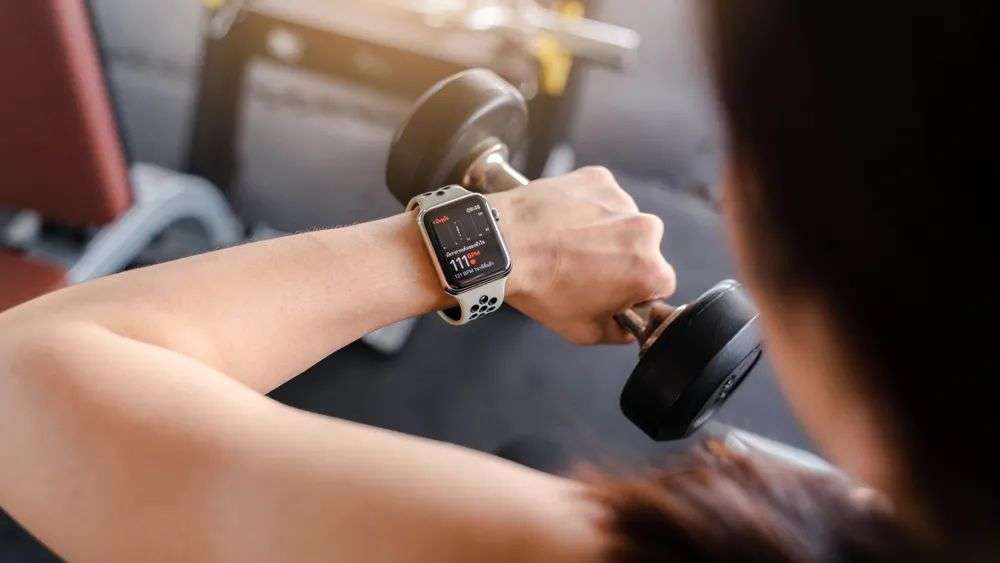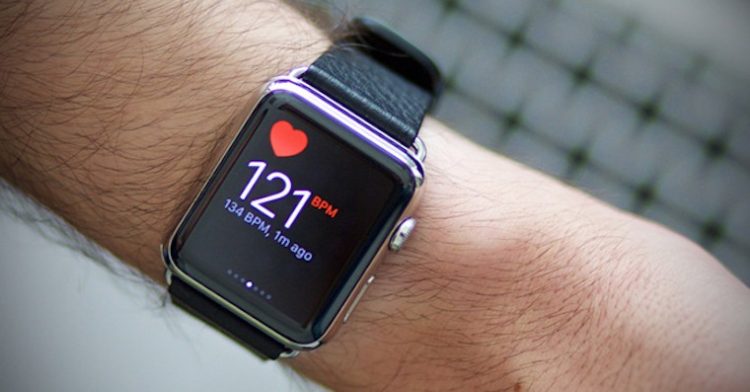Introduction
In the age of technological advancements, there’s a growing interest in how modern technologies can be leveraged to monitor and improve emotional health. Emotional health, which encompasses how we think, feel, and respond to situations, plays a critical role in overall well-being. With the increasing pace of life, widespread stress, and the rise of mental health challenges globally, there is a strong need for innovative solutions to help individuals manage their emotions better and track their mental states in real time.
From wearable devices to artificial intelligence (AI) apps, modern technology is making strides in offering new ways to monitor and improve emotional health. However, questions remain about the effectiveness of these technological interventions. Can they truly help us understand, manage, and improve our emotional health, or are they just trendy tools that offer limited benefits?
This article explores how modern technology is currently being used to monitor emotional health, the benefits and limitations of these tools, and how they can help individuals achieve emotional well-being.
1. The Rise of Emotional Health Technology
The field of emotional health and mental well-being is gaining increasing attention, with an explosion of digital tools, apps, and devices designed to assist individuals in managing emotions, tracking moods, and reducing stress. Modern technology has made it possible for people to actively engage with their emotional states in ways that were previously unavailable.
Technological innovations are also playing a key role in breaking down the stigma surrounding mental health by providing accessible, anonymous, and easy-to-use platforms for self-monitoring and support. From AI-driven apps offering personalized feedback to wearables tracking physiological indicators of emotional distress, these technologies are quickly becoming integral parts of how we understand and manage our emotional lives.
Types of Technologies That Support Emotional Health:
- Wearables: Devices like fitness trackers (e.g., Fitbit, Apple Watch) not only track physical activity but also monitor stress levels, heart rate variability, and sleep patterns—all of which are closely linked to emotional health.
- Mobile Apps: Apps for mood tracking (e.g., Daylio, Moodfit), mental health apps (e.g., Calm, Headspace), and cognitive behavioral therapy (CBT)-based apps (e.g., Woebot, BetterHelp) are gaining popularity for providing users with tools to regulate emotions and reduce anxiety.
- Artificial Intelligence (AI): AI is being used in mental health applications to provide real-time emotional support. AI-driven chatbots, such as Wysa or Woebot, use machine learning algorithms to analyze conversations and deliver personalized therapeutic exercises based on user input.
- Biometric Sensors: Newer biometric technologies allow users to track emotional responses through physiological changes. Devices like Spire or Muse monitor breath patterns, heart rate, and brainwave activity to provide real-time feedback on emotional states, helping users manage stress and anxiety.
These technological solutions are revolutionizing how we approach emotional health, moving away from traditional therapy methods and allowing for more personalized and proactive care.
2. How Technology Monitors Emotional Health
The ability to monitor emotions in real time is one of the most compelling aspects of modern technology. Unlike traditional methods like journaling or therapy sessions, where emotional states are evaluated after the fact, these technologies provide immediate feedback, helping users stay attuned to their emotional states and take action when necessary.
1. Tracking Emotional Responses through Wearable Devices
Wearable devices, particularly fitness trackers and smartwatches, offer one of the most accessible ways to monitor emotional health. These devices measure various physiological indicators, such as heart rate, skin temperature, and sleep patterns, which provide valuable insights into a person’s emotional state.
- Heart Rate Variability (HRV): HRV is an indicator of stress and emotional health. Lower HRV often correlates with heightened stress and poor emotional regulation, while higher HRV suggests better emotional resilience and relaxation. Devices like the Apple Watch and Oura Ring track HRV and provide users with data on how their emotional health fluctuates throughout the day.
- Sleep Monitoring: Sleep is a fundamental aspect of emotional health. Disruptions in sleep can exacerbate emotional instability, while restful sleep supports emotional regulation. Wearables like Fitbit and Oura monitor sleep quality, providing insights into how rest (or lack thereof) affects emotional well-being.
- Breath Patterns: Devices like Spire track your breath and can detect signs of stress or anxiety based on changes in breathing patterns. By tracking these physiological indicators, users can be alerted when their emotional state is shifting, allowing them to take steps to regulate their emotions before they escalate.
2. Mood and Behavior Tracking Apps
Apps designed to track moods and emotional states offer a more subjective, self-reported approach to monitoring emotional health. These apps allow users to log daily emotions, behaviors, and triggers, helping to identify patterns and correlations between specific events and emotional responses.
- Moodfit: This app tracks your mood, sleep, exercise, and other factors that can influence emotional health. It provides visualizations of your mood over time and offers exercises, such as breathing techniques and mindfulness practices, to help improve emotional well-being.
- Daylio: A popular mood tracking app that allows users to log their mood on a daily basis and note their activities, helping them identify what factors may contribute to positive or negative emotional states. This feedback helps users become more self-aware and recognize patterns in their emotional responses.
- Wysa: An AI-based chatbot app that uses cognitive-behavioral techniques (CBT), dialectical behavior therapy (DBT), and other psychological practices to help users manage their emotions. The app tracks moods and offers personalized coping strategies based on real-time data about the user’s emotional state.
By analyzing the data collected through these apps, individuals gain a deeper understanding of their emotional health, allowing them to take proactive steps to improve their emotional regulation.
3. Artificial Intelligence and Emotional Support
AI-powered tools, such as chatbots and virtual assistants, are providing increasingly sophisticated emotional support. These platforms use machine learning and natural language processing to understand a user’s emotional state and respond with tailored interventions.
- Woebot: This AI-driven chatbot offers real-time cognitive-behavioral therapy (CBT) exercises. Woebot uses a conversational interface to interact with users, providing them with tools to manage anxiety, stress, and depression. The chatbot tracks users’ emotional states and offers advice based on the conversation.
- Wysa: Similar to Woebot, Wysa offers real-time emotional support through a conversational interface. It uses AI to understand the emotional tone of the user’s responses and offers evidence-based exercises to help manage emotional distress, such as mindfulness, breathing exercises, and stress management techniques.
These AI-driven platforms are revolutionary because they provide immediate, on-demand support, making mental health resources more accessible and affordable. The ability to converse with an AI chatbot that can offer tailored coping strategies and track emotional progress is especially beneficial for individuals who may not have easy access to in-person therapy.

3. Can Technology Truly Improve Emotional Health?
While technology has made great strides in helping people monitor their emotional states and access real-time support, the question remains: Can it truly improve emotional health?
1. Personalized Feedback and Intervention
One of the most significant advantages of using technology for emotional health is its ability to provide personalized feedback. By tracking emotional states, physiological responses, and behavioral patterns, modern tools can offer customized interventions that are tailored to individual needs. This level of personalization is hard to achieve with traditional methods, such as therapy, which are often more generalized.
For example, apps like Woebot and Wysa provide personalized therapeutic exercises based on real-time data, offering users immediate tools for managing emotions. This allows individuals to make adjustments on the fly, instead of waiting for a scheduled therapy session.
2. Accessibility and Convenience
Technology makes emotional health tools more accessible to a broader population. With mobile apps and wearable devices, individuals can monitor and improve their emotional health at their convenience, without needing to rely on traditional therapy or in-person support. This can be particularly valuable for people who are geographically isolated or those who face barriers such as financial constraints or stigma related to mental health.
- Low-Cost Options: Many apps and AI-driven tools are free or have a low cost, making mental health resources available to people who may not have the financial means to access traditional therapy.
- 24/7 Access: Unlike therapy sessions that require appointments, AI chatbots and mood-tracking apps are available at any time, allowing users to check in with their emotional state and access support whenever they need it.
3. Limitations and Ethical Considerations
Despite the many benefits, there are some limitations and ethical considerations to keep in mind when using technology to monitor and improve emotional health.
- Data Privacy: Collecting emotional data and personal health information raises concerns about privacy and data security. Users must be cautious about where and how their emotional data is stored and shared.
- Over-Reliance on Technology: While technology can provide support, it should not be seen as a substitute for professional mental health care. Serious mental health conditions, such as severe depression or anxiety, may require in-person therapy or medication.
- Lack of Human Connection: Although AI chatbots can provide immediate support, they cannot replace the empathy and human connection that a licensed therapist or counselor can offer. Emotional health is often best supported through genuine human interaction and understanding.
4. Conclusion: The Future of Emotional Health Technology
Modern technology offers promising tools to monitor and improve emotional health, providing valuable insights into our emotional states and offering interventions that can help us regulate our emotions. From wearables tracking physiological responses to AI-powered apps offering personalized therapeutic support, these innovations have the potential to revolutionize how we approach emotional health management.
However, while technology can significantly enhance emotional well-being, it is important to view it as a complementary tool rather than a complete solution. A holistic approach to emotional health should involve a combination of technology, self-awareness, lifestyle practices, and professional support when necessary.
In the future, we may see even more sophisticated emotional health technologies that integrate biometric data with AI, offering highly personalized and effective solutions for individuals seeking to improve their emotional well-being. The key will be to strike a balance between utilizing technology and maintaining the human elements of empathy, connection, and professional care that are fundamental to emotional health.







































